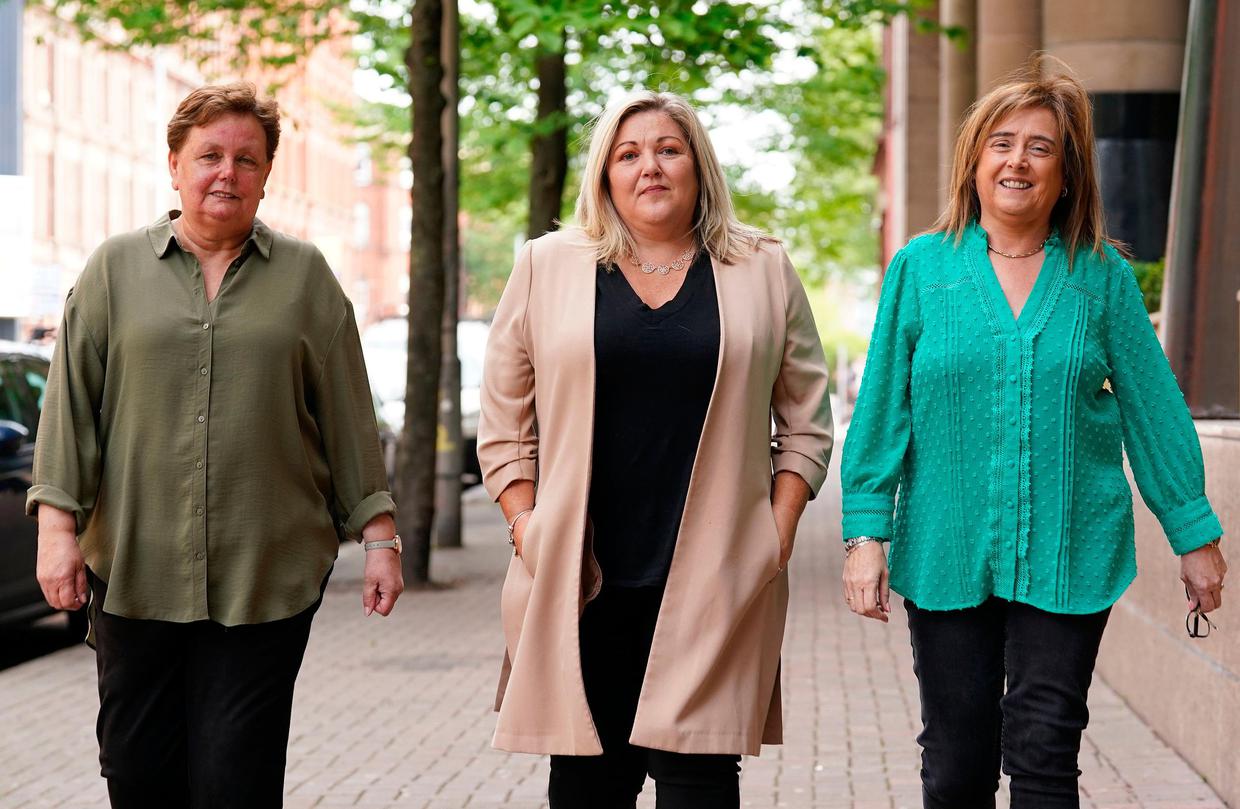Post office scandal inquiry sits in Belfast

A woman who was wrongly accused of taking £63,000 in a UK-wide post office scandal has described her frantic bid to pay money she did not owe.
Sinead Rainey has given evidence to The Post Office Horizon IT Inquiry which is holding hearings in Belfast.
The scandal saw more than 700 people wrongly accused of theft, fraud and false accounting.
Between 2000 and 2014, a flaw in a newly installed computer system made it look like money was missing from post offices.
It led to suspensions, termination of contracts, wrongful prosecutions and convictions.
Ms Rainey, from Moneyglass, County Antrim, owned a Spar shop which had a post office in it, but she was not the sub-postmistress.
She told the inquiry about the day post office auditors visited the store demanding that she repay discrepancies worth £63,000 within an hour.
“I drove home and I lifted a bucket in my house.”
She said she emptied her children’s money box into it and “any money that I had in the house – 2ps, 5ps, everything”.
Several family members helped her gather about £42,000 in the bucket.
“The auditors made me stand there and watch them count it. They tutted and made me feel so lousy for bringing them all of these pennies but I brought them whatever I could.”
Ms Rainey also told the inquiry that relationships with close relatives have broken down.
“I don’t go anywhere. I don’t do anything,” she said.
“I don’t even visit my own mother and father-in-law because I feel like I let them down because I wrecked their son’s life because of what happened to me.
“I will never be the person I was before.”
Deirdre Connolly told the inquiry that post office officials used “bully boy tactics” to accuse her in the wrong of fraud.
She was removed from her post office at Killeter, County Tyrone, in 2010.
She said she never received formal training when she took over the post office and the available helpline, which she phoned several times, did not understand her accent.
Ms Connolly described how she was told to plead guilty and forced to repay a discrepancy of over £15,000 which she did not owe.
Her family had to re-mortgage their home and were declared bankrupt.
“Financially, we were ruined,” she commented.
In a meeting with a fraud investigator, Ms Connolly said she was asked if she took the money for paramilitary organisations.
“All I could think of is is this going to get out? Are they going to say that I’ve been taking money? I felt for the safety of my family,” she said.
She described how the action against her caused financial hardship and a mental health breakdown.
“My mental health will never be the same again. Constant tablets,” she said.
Heather Earley had to leave her post office in Newtownabbey in 2017 after the faulty computer system prompted discrepancies and authorised illegitimate payments to a customer.
She said she was told she had to repay the money, but the post office refused to pay her back when the customer was arrested and pleaded guilty to the alleged crime.
On a different occasion, Ms Earley was told her post office would be closed down if she did not pay back £112 of Christmas stamps which were missing.
She told the inquiry she had to pay nearly £50,000 to keep her head above water.
Heather said she was in “a very dark place” while dealing with the stress of the discrepancies.
“I was taking loans from family members and I had three credit cards maxed just to get stock for the shop,” she said.
“It was horrendous what me and my family went through.
“My community suffered. They lost their post office and local shop that a lot of elderly people relied on.”
In a concluding statement, the former sub-postmistress called for others to come forward and tell their story.
Some 19 post office workers in Northern Ireland were convicted, but it is believed there were more victims of the scandal who have not come forward.
It is thought some people have been reluctant to do so because of the stigma of being accused in the wrong.
Sir Wyn has already heard from victims in other parts of the UK and this is the final week of the human impact hearings.






